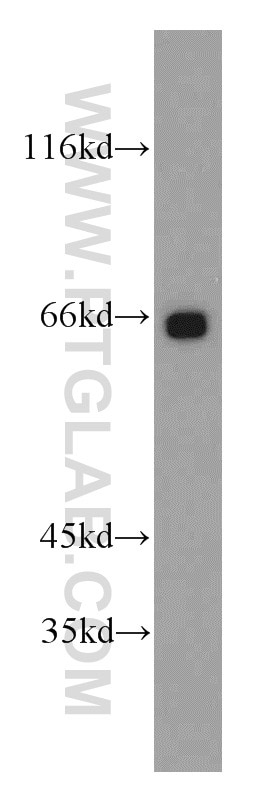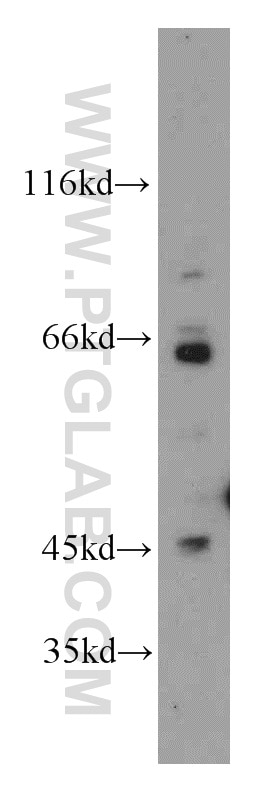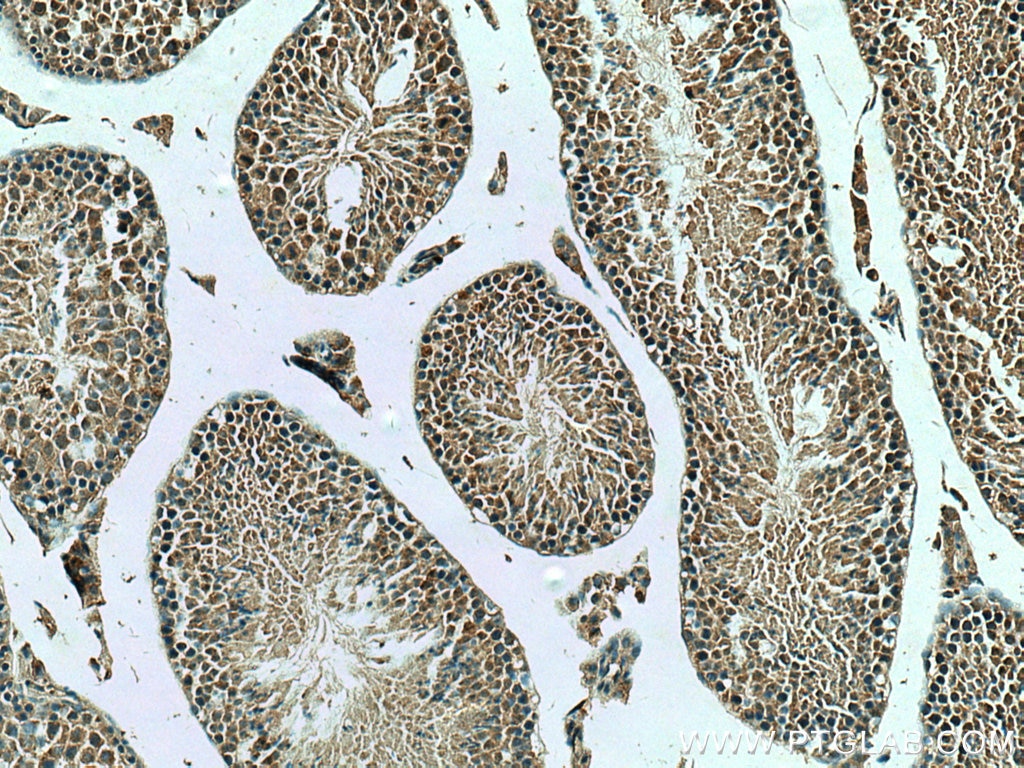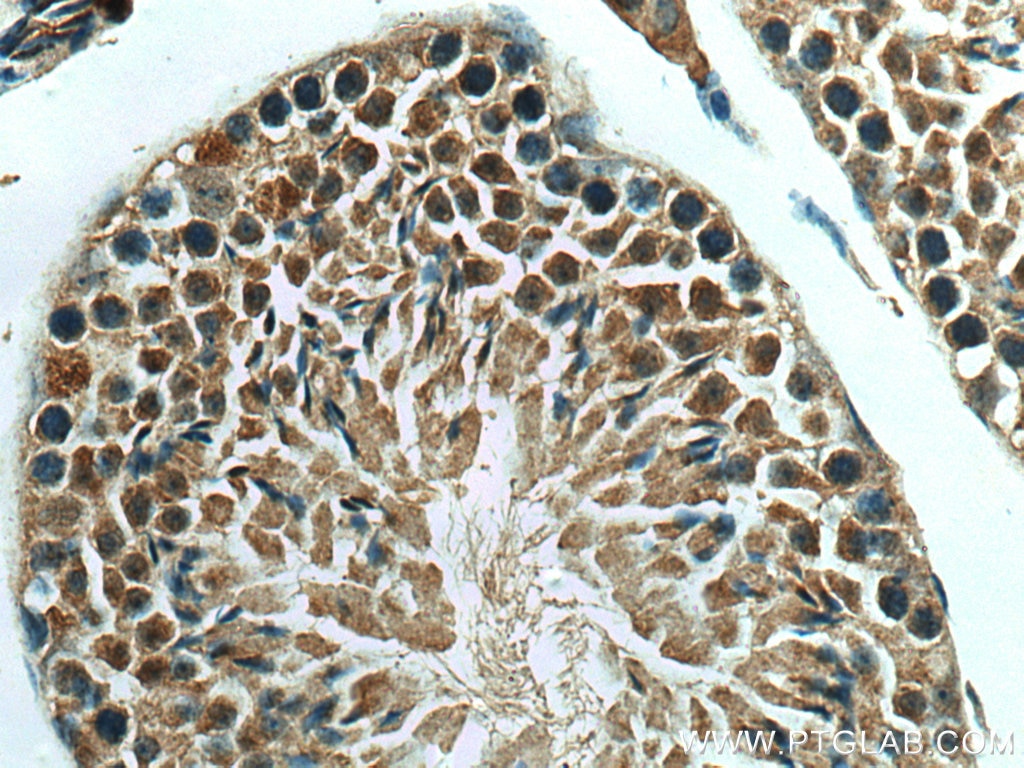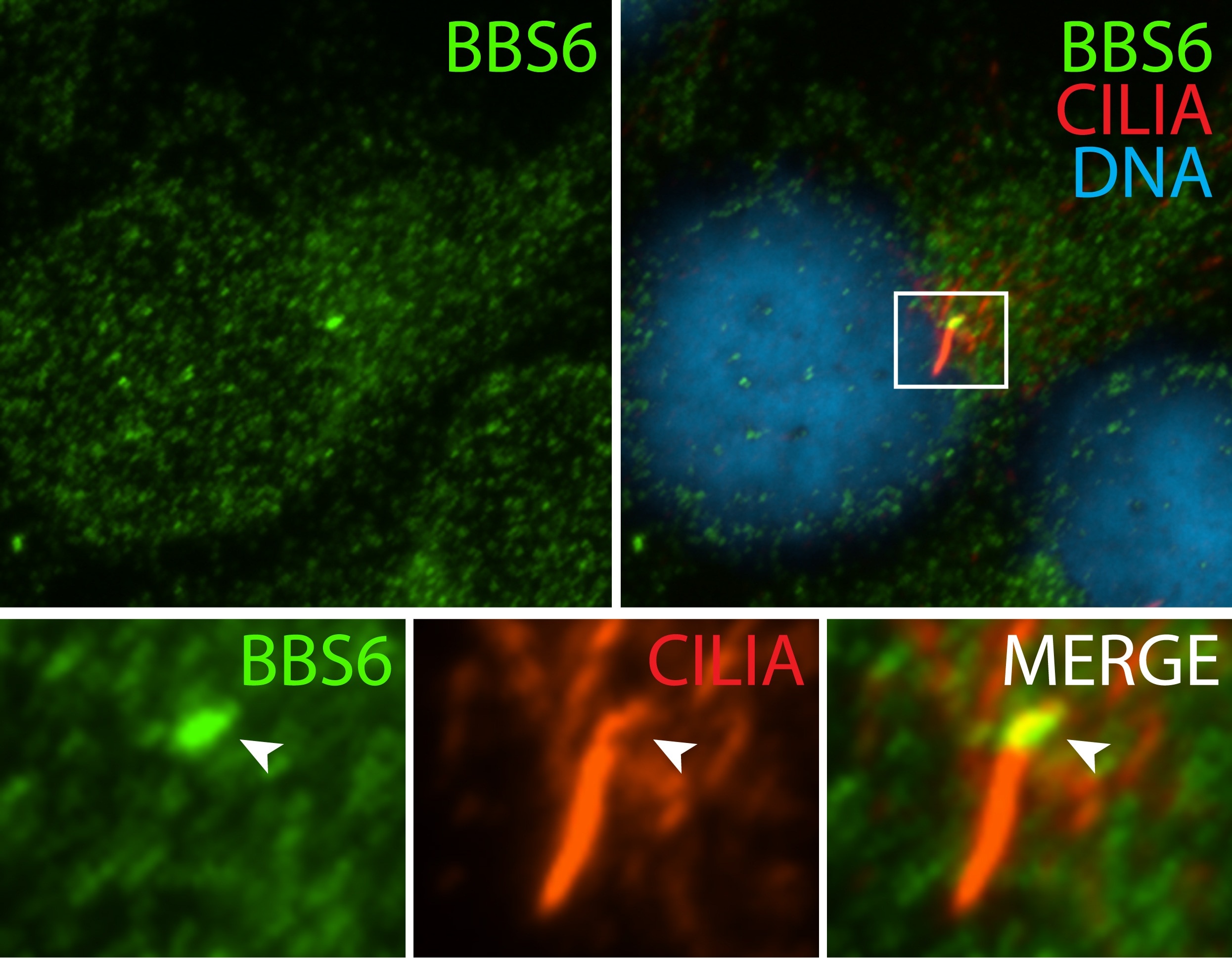Tested Applications
| Positive WB detected in | mouse testis tissue, mouse brain tissue |
| Positive IHC detected in | mouse testis tissue Note: suggested antigen retrieval with TE buffer pH 9.0; (*) Alternatively, antigen retrieval may be performed with citrate buffer pH 6.0 |
| Positive IF/ICC detected in | hTERT-RPE1 cells |
Recommended dilution
| Application | Dilution |
|---|---|
| Western Blot (WB) | WB : 1:200-1:1000 |
| Immunohistochemistry (IHC) | IHC : 1:50-1:500 |
| Immunofluorescence (IF)/ICC | IF/ICC : 1:20-1:200 |
| It is recommended that this reagent should be titrated in each testing system to obtain optimal results. | |
| Sample-dependent, Check data in validation data gallery. | |
Published Applications
| WB | See 2 publications below |
Product Information
13078-1-AP targets BBS6 in WB, IHC, IF/ICC, ELISA applications and shows reactivity with human, mouse, rat samples.
| Tested Reactivity | human, mouse, rat |
| Cited Reactivity | human, mouse |
| Host / Isotype | Rabbit / IgG |
| Class | Polyclonal |
| Type | Antibody |
| Immunogen | BBS6 fusion protein Ag3785 Predict reactive species |
| Full Name | McKusick-Kaufman syndrome |
| Calculated Molecular Weight | 62 kDa |
| Observed Molecular Weight | 63 kDa |
| GenBank Accession Number | BC028973 |
| Gene Symbol | MKKS |
| Gene ID (NCBI) | 8195 |
| RRID | AB_10603370 |
| Conjugate | Unconjugated |
| Form | Liquid |
| Purification Method | Antigen affinity purification |
| UNIPROT ID | Q9NPJ1 |
| Storage Buffer | PBS with 0.02% sodium azide and 50% glycerol, pH 7.3. |
| Storage Conditions | Store at -20°C. Stable for one year after shipment. Aliquoting is unnecessary for -20oC storage. 20ul sizes contain 0.1% BSA. |
Background Information
MKKS also known as BBS6 is a probable chaperone given to the amino acid similarity to the chaperonin family of proteins and may play a role in protein processing in limb, cardiac and reproductive system development. The mutations in BBS6 have been linked to Bardet-Biedl syndrome (BBS) which is a genetically heterogeneous, autosomal recessive disorder characterized by usually severe pigmentary retinopathy, early onset obesity, polydactyly, hypogenitalism, renal malformation and mental retardation. It may also get involved in cellular organization processes, in particular relating to ciliary/flagellar and centrosomal activities.
Protocols
| Product Specific Protocols | |
|---|---|
| WB protocol for BBS6 antibody 13078-1-AP | Download protocol |
| IHC protocol for BBS6 antibody 13078-1-AP | Download protocol |
| Standard Protocols | |
|---|---|
| Click here to view our Standard Protocols |
Publications
| Species | Application | Title |
|---|---|---|
Mol Neurobiol Inpp5e Regulated the Cilium-Related Genes Contributing to the Neural Tube Defects Under 5-Fluorouracil Exposure | ||
Front Cell Dev Biol The BBS/CCT chaperonin complex ensures the localization of the adhesion G protein-coupled receptor ADGRV1 to the base of primary cilia |
